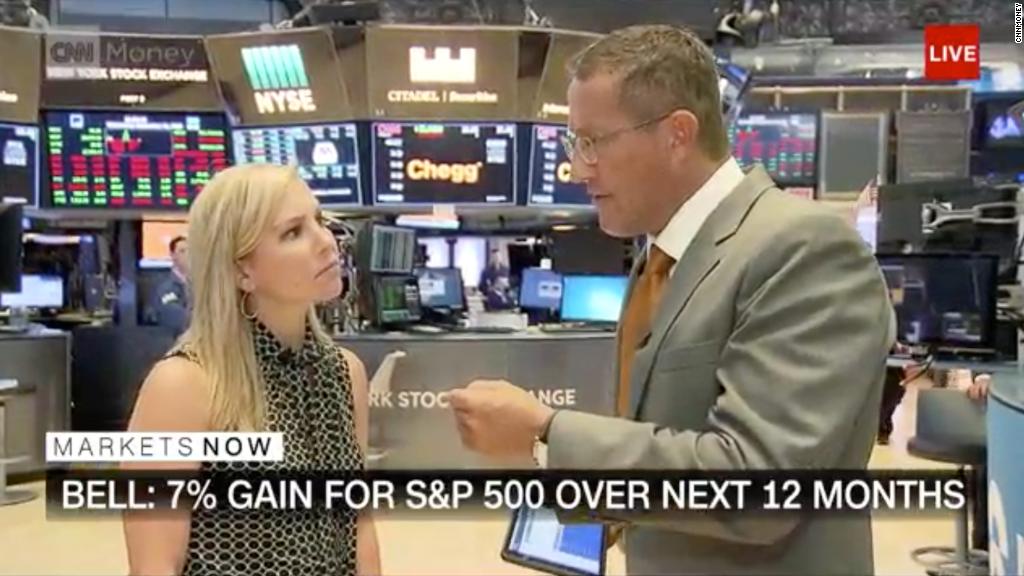
The longest bull market in history shows no signs of letting up.
The S&P 500 soared more than 7% in the third quarter, which ended on Friday. That's the strongest quarter for the broad index since the end of 2013. The Dow spiked more than 2,100 points, or 9%. All three major indexes are near record highs.
The surge represents a powerful rebound from Wall Street's brush with disaster in late January and February. Fears about inflation and tariffs have faded. Investors have shifted their focus to the strong economy and blockbuster corporate profits.
Not even an escalating trade war between the United States and China, the world's two biggest economies, derailed stocks.
"This time six months ago most expected the trade issues to slow down the economy, but that simply didn't happen," said Ryan Detrick, senior market strategist at LPL Financial.
The US economy grew at a brisk 4.2% pace in the second quarter. That's the fastest pace in nearly four years. The Atlanta Federal Reserve is forecasting third-quarter growth of 3.8%, although that's down from its prior estimate of 4.4%.
The sturdy economy, along with corporate tax cuts, has sparked fantastic growth for Corporate America's bottom line.
After spiking during the first half of the year, S&P 500 earnings are expected to leap another 19% in the third quarter, according to FactSet.
The strong third quarter on Wall Street could be a good omen for the rest of the year. When the S&P 500 rises in the third quarter, it has advanced an average of 3.8% in the fourth quarter of all years since 1945, according to Sam Stovall of CFRA Research. In midterm election years, the S&P 500 rallies an average of 7.1% in the fourth quarter following a third-quarter gain.
The fourth quarter of a midterm year is typically one of the strongest quarters out of the four-year presidential cycle, according to LPL Research.
"With earnings and the overall economy on firm footing, the calendar could be the bull's best friend," Detrick said.
So what could cause renewed turbulence on Wall Street? Investors will be on guard for more turmoil out of emerging markets, especially Argentina and Turkey. And everyone is looking for clues about whether China's economy is withstanding the onslaught of tariffs.
Wall Street is also keeping a close eye on the Federal Reserve's efforts to wean the economy and stock market off easy money.
The Fed raised rates for a third time on Wednesday and signaled another rate hike is in the cards for December. The decision marked the end of an era for the central bank. Longstanding language describing rates as "accommodative" was removed, suggesting policy is no longer so easy that it's boosting growth.
If inflation significantly heats up, the Fed could be forced to accelerate its rate increases to the point that it hurts the economy. Friday's jobs report could offer more evidence of strengthening wage growth, a major driver of inflation.
"A policy mistake down the road (from the Fed) could put an end to this bull market," Detrick said.
The bull market's biggest challenge could be dealing with a looming deceleration in profits as the impact of the tax cuts fades. S&P 500 earnings are projected to rise by 7.1% in the first quarter of 2019, according to FactSet. That's a healthy gain, but barely half the recent spike.
"My most pressing concern," said Stovall, "is that a slowdown in earnings next year will cause investors to take profits now."


